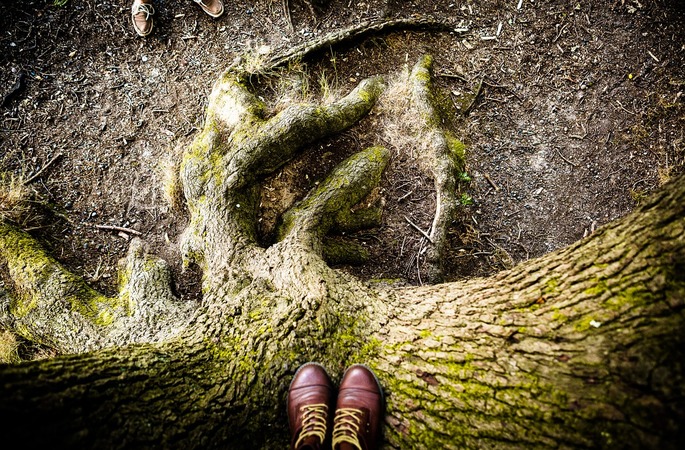The necessary overthrow of our idols in our journey of individuation.
We’ve seen a lot of statues being forcibly taken down from their plinths and pedestals, in the past few weeks, as the #BlackLivesMatter movement has started to increase in momentum. Statues of slave traders in Bristol, England; and profiteers from slavery in the United States. Statues of people who built great personal wealth and reputation from colonization and the economic prosperity that it brought to the so-called ‘first world’ countries.
Last year, during the #MeToo movement, we saw the downfall of a famous, enormously wealthy and successful movie producer, and the end of the professional career of a famous actor, ironically playing the part of a President in the aptly-titled political satire ‘House Of Cards’.
There seems to be a global upsurge in the violent casting down of idols.
The author J.K. Rowling, venerated by a legion of fans for her Harry Potter book and movie franchise for 20 years, is now being castigated and renounced by many in her fanbase because of her professed exclusionary opinions about what constitutes a ‘true woman’. The rigid monochromatic binaries of sexual, racial and economic categories which defined us, and by which we previously organized ourselves, have today exploded into a multiplicity of self-identification. For some people, this wide range of possibilities is perplexing, and unnecessary. For others, it is vital and liberating.
Greater respect for those who are different from ourselves, greater empathy, greater sensitivity to the contexts and experiences of others, will hopefully be the ultimate result of this conflict-ridden transitional period. It seems painful, but necessary. As if the human race is finally growing up.
I suggest that we could experience the events in this transition as less traumatic if we relate it to our own personal growth process. We all start the development of our beliefs and attitudes from our own specific context; and our early mentors and idols, including our parents, mirror what is normal for us, and what we aspire to be. They are the measure of us, and we measure ourselves by them.
But young people grow up. Outgrowing our idols, feeling betrayed by them, disillusioned and disappointed by their words and actions as their historical acts of offensiveness come to light, from genocide to sex abuse, exploitation of the vulnerable, promotion of racial or gender-based hatred, is part of our own self-determination.
As we grow, whether as individuals or as nations, it seems inappropriate to have statues in public places celebrating the deeds of people whose actions today are ones we cannot admire.
In our personal lives, people we looked up to, who represented certain qualities to us, which we admired intensely when we were younger, including wealth, fame, beauty and success, are sometimes shown by their own words and actions to be morally deficient or limited in their outlook. We find that our values no longer align with them.
I experienced this recently when researching sources for an academic paper I was presenting on the topic of Exoticism, looking at the ways in which women were described as alluring and provocative in varied literary texts. I found an extract from Pablo Neruda’s Memoirs in which he describes how he sexually assaulted a woman who was employed to clean his house while he was stationed as a diplomat in Sri Lanka in the late 1920s. I was horrified both by his action, and the emotionless and matter of fact way he wrote about it, and mentally dethroned Neruda from the position of respect which I had formerly accorded him.
I recently discovered that Derek Walcott, a brilliant poet and post-colonial writer whose literary work I have long admired, was not given the prestigious role of Professor of Poetry at Oxford University because of accusations of personal misconduct against him.
Psychologists say that we project qualities we admire onto others: it’s ‘the halo effect’. We are so impressed by their good qualities that we do not see their human frailties and failings. It makes it even more difficult for those elevated by public acclaim to self-evaluate or set limits on their own behaviour, as they are allowed so much license by the indulgent, adoring public.
We can blame those we have idolized, for failing us. To use the statue analogy, we can throw paint at them or deface them, to display and dramatize our disrespect. We can insult them and berate them.
Alternatively, we can appreciate that our own standards and expectations are transforming. We can mindfully clear space for worthier inhabitants of those pedestals, which better represent our modern-day ideals.
Or we can do without those statues and those pedestals altogether. We can cease to idolize others, and we can take greater responsibility and accountability for the objects of worship we put up in our public spaces, and those individuals we venerate in our hearts, minds and spirits.
We can develop the qualities we admire in ourselves, and make them living personal ideals which guide our lives, rather than giving away our personal powers by externalising them onto idols made of stone.



